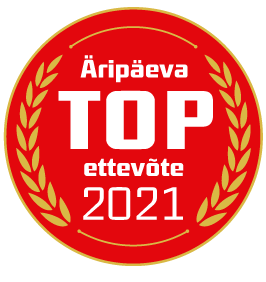
Food-related expenses in a company and taxation in Estonia. Year 2026.
An entrepreneur should be very cautious before allocating food expenses to the company, as it may lead to additional taxes or tax risks.
Content
What tax benefits does the law provide regarding food expenses?
The law provides a tax benefit of €50 per month for hosting clients, partners, and guests (including food, entertainment, and transportation). This tax benefit does not apply to company employees or board members. Food expenses for clients that fit within the €50 per month limit are not subject to taxation. Although no taxes arise, there is an obligation to declare such expenses on a monthly basis.
It is noteworthy that if this tax benefit is not utilized, it “accumulates” over the course of the calendar year.
- In January – €50
- In February – €100
- In March – €150
- …
- In December – €600.
The tax benefit “resets” at the start of a new calendar year, and the count begins anew. Thus, if the tax benefit is not used throughout the year, in December you can host your clients (NOT yourself or your employees) and guests for up to €600 without incurring additional taxes. Don’t forget to declare such expenses on a cash basis (when the expense was paid).
If your company has employees, the amount of the tax benefit increases. You can incur hosting and food expenses for clients without additional taxation for an amount equal to 2% of payments subject to social tax (e.g., from declared salaries). The same rules apply to this part of the tax benefit:
- The tax benefit accumulates over one calendar year.
- A new count begins with the start of a new year.
- Food and hosting expenses must be declared.
- Supporting documents and receipts are required to verify expenses.
Expenses for hosting clients and guests that exceed the tax benefits provided by law are taxed at a rate of 22/78 or 28.2%.
Food for employees and board members
The law does not provide any exemptions for food expenses for company employees and board members. All food provided for “insiders” is taxed at rates of 33% and 22/78. The tax burden is approximately equivalent to payroll taxes.
The downside is that these taxes are not personalized, meaning your employees will not receive any social benefits (such as sick leave or parental pay) from such tax payments.
Food during business trips
Everything depends on pricing.
“How do companies that provide catering services manage?” – you might ask.
If a company’s activity involves providing catering services (as specified on the invoice, which states that the charge is for catering services, specific dishes, beverages, or confectionery), the company can allocate food-related expenses necessary for providing the service to the business.
There are also companies that do not specialize in catering services, but where providing food is an integral part of their additional services (e.g., the hospitality industry or seminar organizers offering refreshments to clients). In this case, everything depends on pricing, proper documentation, and how these expenses are recorded in the accounting system.
If the invoice for services includes two items:
- Payment for the main service
- Payment for catering
In this case, food expenses can confidently be allocated to the company without incurring additional taxation. These expenses can be recorded as a direct pass-through of catering costs, which, according to VAT legislation, is considered non-taxable turnover. Alternatively, meal packages can be sold, in which case the price of the package does not necessarily have to match the cost of the meal per person and may include a markup.
Thank you for reading till the end! If you enjoyed the article, share it with your friends!
The author and owner of the materials is PUNAMOON OÜ. Reprinting of the materials is not allowed. Sharing materials online is permitted only with an active link to the article.






